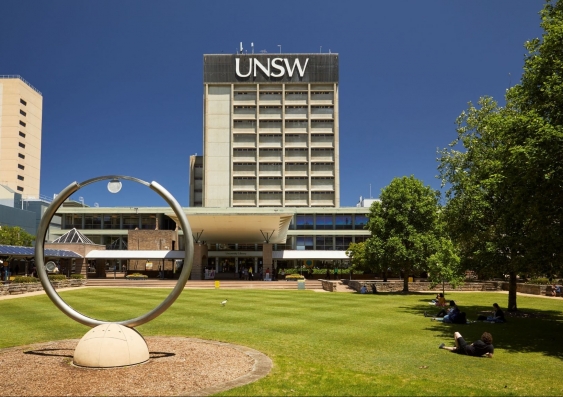Findings of 2021 National Student Safety Survey released
UNSW has welcomed the release of the 2021 National Student Safety Survey on sexual harassment and sexual assault at Australian universities
UNSW has welcomed the release of the 2021 National Student Safety Survey on sexual harassment and sexual assault at Australian universities

Abi Scott
Division of EDI
(02) 9385 2864
abi.scott@unsw.edu.au
Today the findings of the 2021 Universities Australia National Student Safety Survey (NSSS) have been announced.
Funded by Universities Australia (UA) through its Respect. Now. Always. initiative – a sector-wide program that aims to prevent gendered violence in university communities and support those who have been affected – this survey builds on the Australian Human Rights Commission’s (AHRC) survey in 2016.
The 2021 NSSS tells us that sexual harassment and sexual assault are still common experiences for Australian university students. While not all these experiences occur in university contexts, the findings demonstrate the profound impacts of gendered violence on students and that more must be done to reduce its prevalence and provide support to those impacted. The findings will inform the ongoing efforts of Australian universities to address gendered violence and build safe, equitable and inclusive environments.
In a joint email to all UNSW students and staff today, UNSW Vice-Chancellor and President, Professor Atilla Brungs, Deputy Vice-Chancellor, Equity Diversity & Inclusion, Professor Eileen Baldry and President, Student Representative Council, Nayonika Bhattacharya said:
“Behaviour that amounts to sexual harassment or sexual assault is not acceptable at UNSW. Our students are affected directly. They need us to do more, we need to do more. As universities we have additional responsibilities, not only must we make our campuses safe and welcoming places for all our students, staff and visitors, we are also uniquely placed to contribute to solutions. We graduate thousands of people every year whose understanding, expectations and actions will shape behaviour in the broader community. They will influence culture in workplaces and homes across Australia for decades to come. Our university can be a powerful force for that change.”
UNSW supports the recommendations in the NSSS and thanks all our UNSW students who took part, especially those victim-survivors who bravely shared their experiences. Their feedback, along with findings from the survey, will be critical in helping us to address gendered violence within our own community, including what prevents victim-survivors from coming forward and making a report.
Over recent years UNSW has pursued key initiatives in partnership with student organisations, co-designed to create awareness and provide support for those affected. The University will build on this collaborative approach to address the findings in the 2021 survey.
Key UNSW findings were broadly in-line with the national survey results and include:
Some of the UNSW specific findings include:
The survey has provided valuable insight to better target our efforts and highlights the next step-change needed to increase awareness for students on how to access support.
The full national and UNSW specific reports can be found here.
In the five years since the first survey, UNSW has maintained a close involvement in the Respect. Now. Always. initiative and worked to fulfil all the recommendations in the report and improve the prevention of and response to sexual misconduct through:
A new strategy to address gendered violence at UNSW is being developed with the Gendered Violence Research Network, informed by the results of the NSSS, and will be available in May. This will include strategies to prevent gendered violence as well as provide a supportive and respectful approach to the management of incidents when they do occur.
We understand that conversations about the NSSS and its results can be distressing for members of our university and wider community. If you would like to discuss anything that this report brings up for you, please phone 1800Respect, the national sexual assault, domestic and family violence counselling and information service on 1800 737 732 or visit their website. Further support services are available and current or past incidents can always be reported via the UNSW Sexual Misconduct Reporting Portal.